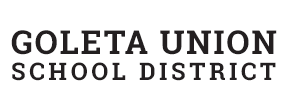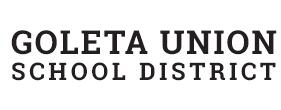Our Mission
To support social and emotional development and provide challenging learning opportunities responsive to the needs of high-ability students using research-based, differentiated instructional practices applied, but not limited to, grade-level standards.
Parent Information Night:
Differentiation 101 - click here to access the slides from the presentation.
Frequently Asked Questions About Goleta's Gifted Identification Process
Q: How does the Goleta Union School District (GUSD) identify students with unique and high-ability?
A: GUSD administers the Cognitive Abilities Test (CogAT) to all students in third grade. The CogAT is a norm-referenced test wherein the national average is the 50th percentile. The primary goal of this assessment is to understand acquired, abstract reasoning capabilities of students and include this information in the student’s learning profile. Students scoring in the 97th percentile and above on one of three composite scores are designated as having high-ability in our district. Students who are English Learners and/or are socioeconomically disadvantaged are designated when they score at or above 90% on those same composites.
Q: How can I learn more about the CogAT?
A: Click here to download the FAQ document to learn more about it.
Q: Can my child be retested in GUSD?
A: It is possible. We have an appeal process in place when a teacher, parent, psychologist or administrator feels that a child in 4th-6th demonstrates characteristics of high- ability and is not designated. A Gifted Education Support (GES) committee considers all 4-6th applicants and decides whether or not the district moves forward with retesting.
Q: Can I have my child privately tested?
A: Private assessment is considered in the identification process, as required by law.
Q: What percentage of students is identified in Goleta and how does it compare to the national recommendation for identification?
A: The National Association for Gifted Children (NAGC) says that the number of students identified should be between 6-10%. Nationally, the United States averages 7.5% of the population identified as having high-ability. Currently, GUSD has identified 9% of its population.
Q: Once my child is identified, what does it mean for him/her in GUSD?
A: Goleta teachers in grades K through 6 have received professional development in gifted education. Our teachers understand the characteristics, needs, and social-emotional issues that arise within populations of gifted students. A student’s designation of having high or unique ability in GUSD results in adjustment on the teacher’s part of an educational approach. Differentiation takes many forms in the classroom and is flexible, based on the teacher’s understanding of what is needed for the student.
Q: What gifted education strategies are utilized in GUSD?
A: GUSD teachers utilize two main strategies in their classrooms in order to support the needs of students with high-ability. They are:
-Depth and Complexity
Depth and Complexity is a set of 11 prompts used by GUSD teachers to deepen and enrich learning. These prompts came from research on: (1) Advanced Placement exams, (2) the needs of high-ability students, and (3) the structure of academic fields of study. The concepts of Depth and Complexity represent what experts know about their field.
-Universal Themes
Thematic instruction is a long-standing approach to education. Use of a theme allows for connections to be made between and across several sources of information, disciplines of study, and/or works of literature. With thematic instruction, meaning-making is the goal. It facilitates the organization of facts and how they relate to a larger context.
Justification for use with high-ability learners: Students with unique and/or high-ability tend to move through stages of abstract thinking more quickly. Thematic instruction promotes wider, more complex representations of meaning. It enables students to recognize the variety of ways in which people make sense of the world and organize knowledge across disciplines of study.
Q: What does GUSD do when profoundly gifted students are in need of additional acceleration or enrichment?
A: Profoundly-gifted students make up 1-3% of our total population. When a student is consistently achieving far above grade level and has scored in the 97% or above on the CogAT, additional steps may be taken to individualize or specifically differentiate for the student. We do this using a district framework called Multi-Tiered System of Supports (MTSS). More about MTSS can be found on the California Department of Education website here:
http://www.cde.ca.gov/ci/cr/ri/mtsscomprti2.asp.
Q: Does SBUSD honor the identification criteria in Goleta?
A: Yes. The Santa Barbara Unified School District maintains identification of GUSD students as they matriculate into junior high school and high school.
Q: What is used to determine student placement in compaction math classes in junior high in the Santa Barbara Unified School District (SBUSD)?
A: SBUSD determines the number of honors courses to offer each year based on the needs of students matriculating into 7th grade and 8th grade. Junior High Schools consider results of the Smarter Balanced Assessment, CogAT, achievement tests from districts out of state (Gifted identification, based on CogAT results in Goleta, is no longer a factor that influences class placements in Jr. High).
Q: Does gifted identification influence a student’s ability to take Advance Placement or International Baccalaureate courses in high school?
A: No. High schools in Santa Barbara have open enrollment for AP and IB courses. Any and all students may enroll in these classes, if they choose.
Kristina Munoz (mail to: kmunoz@gusd.us)
Director of Educational Services
(805) 681-1200 x2224
GES Committee List
GES Parent and Teacher Advisory Committee Rep. List for 2025-2026
GES Parent and Teacher Advisory Committee Rep. List for 2024-2025
Gifted Education Support Parent Advisory Committee Meetings
GES Advisory Committee 2025-2026 with Agendas and Minutes:
October 14, 2025 GES Meeting Agenda and Notes (Español)
January 13, 2026 GES Meeting Agenda and Notes (Español)
March 17, 2026 GES Meeting Agenda and Notes (Español)
May 5, 2026 GES Meeting Agenda and Notes (Español)
GES Advisory Committee 2024-2025 with Agendas and Minutes:
May 6, 2025 GES PAC Meeting Agenda and Notes ( Español )
March 18, 2025 GES PAC Meeting Agenda and Notes ( Español )
Jan. 28, 2025 GES PAC Meeting Agenda and Notes ( Español )
Oct. 22, 2024 GES PAC Meeting Agenda and Notes ( Español )
This site provides information using PDF, visit this link to download the Adobe Acrobat Reader DC software.




